Arsene Wenger has generally remained coy on who could eventually replace him as Arsenal manager but there is one man the Frenchman did publicly state he would like to succeed him when he leaves the club.
"I would love Stojkovic to be my successor; there are a hundred reasons for that," Wenger told Serbian paper Vecernje Novosti in 2011. ''Our ideas are the same and we both strive for perfect football. I knew he was going to have teams playing attacking football with many passes. He has done that, showing he will be a great coach."
Known as ‘Pixie’ by many in Japan and Serbia, former Nagoya midfielder Dragan Stojkovic spent eight years at the J-League side as a player – including two years playing under Wenger - before taking over as manager in 2008. He won manager of the year in Japan after a successful season in 2010 before leaving five years later to join Chinese Super League side Guangzhou R&F, with whom he has a contract until 2020.
Stojkovic spoke to Goal about how Wenger served as inspiration for him to enter football management while revealing for the first time how he played an integral part in bringing the Frenchman from Monaco to Nagoya in 1995.
“He was an inspiration for me to become a coach because of the experience of working with him for two years,” Stojkovic admits.
“We played nice football and we won the Emperors Cup, he became MVP coach of the year and I became MVP Player of the Year in an excellent group of foreign players. That was a big satisfaction for both of us and the club also.
“I realised that football is very simple. Under [Wenger’s] control, football is very simple but to be simple in football is so, so difficult.
“When he became coach I really started to enjoy playing football and felt huge pleasure to be on the pitch to do what I can do for my team. Every day was a pleasure to have training and preparation for the game, everything.
“I remember when I heard that he could become the new manager of Nagoya. I spoke with the president at the time Mr Nishigaki and technical director Mr Sogami who asked me if I knew Mr Wenger - but they didn’t pronounce the name well.
“I asked them to repeat because they were saying something like ‘Vengel’ and told them to write it on the paper. When I saw it written down I asked them, ‘Do you have a chance to bring this coach here?’ They said ‘yes’ and my answer was, ‘Just do it immediately, don’t waste time - bring him here.'
“I was 100 per cent sure that he would give [Nagoya] the football that people want to see. Then, in January 1995, we met in a hotel in Paris where he [Wenger] asked me about Japan and everything.
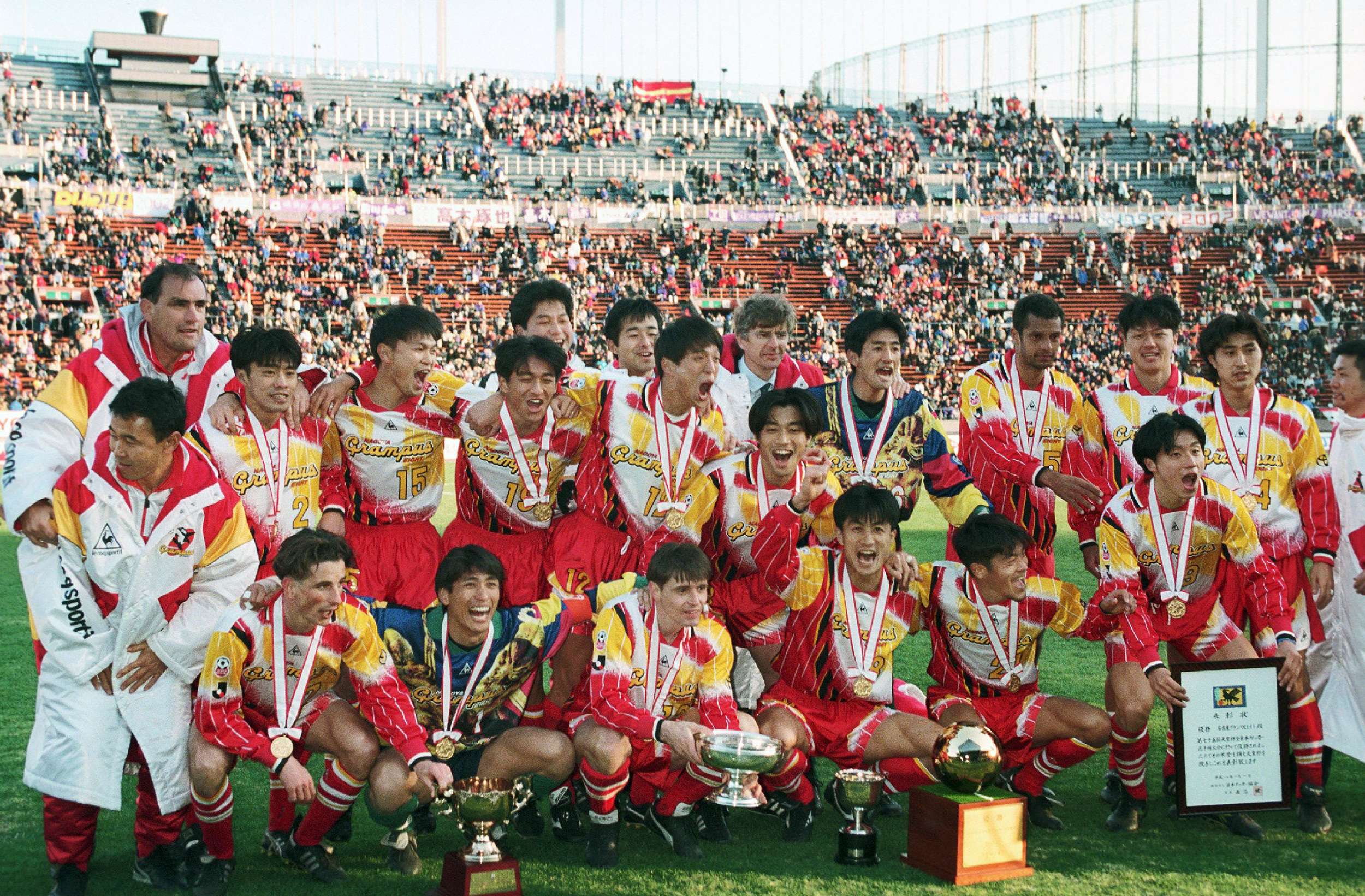 Getty
Getty
“I explained to him what he could expect there and told him that he would never get pressure from anyone and he could do his job how he thinks.
“I explained the respect culture in Japan and gave him good information about Nagoya and Japan.”
Of course, Wenger’s footballing philosophy would later change the face of the English game, as his Arsenal sides became renowned for their free-flowing attacking football.
Those closest to him paint a picture of a man who is deeply passionate about football, agonises over every detail of his offensive game-plan and takes great pride in developing players both as professional athletes and human beings.
It certainly shaped Stojkovic's entire approach to tactics. “We share the same philosophy of football,” he enthuses.
“I like his methodology of working and training, how to deliver nice football to the people. I’m very happy to share these ideas in the same way as this is exactly how I see my team today.
“He was my inspiration to become a coach and in my last examination to get the pro licence I was at Arsenal’s training ground where I spent one week there.
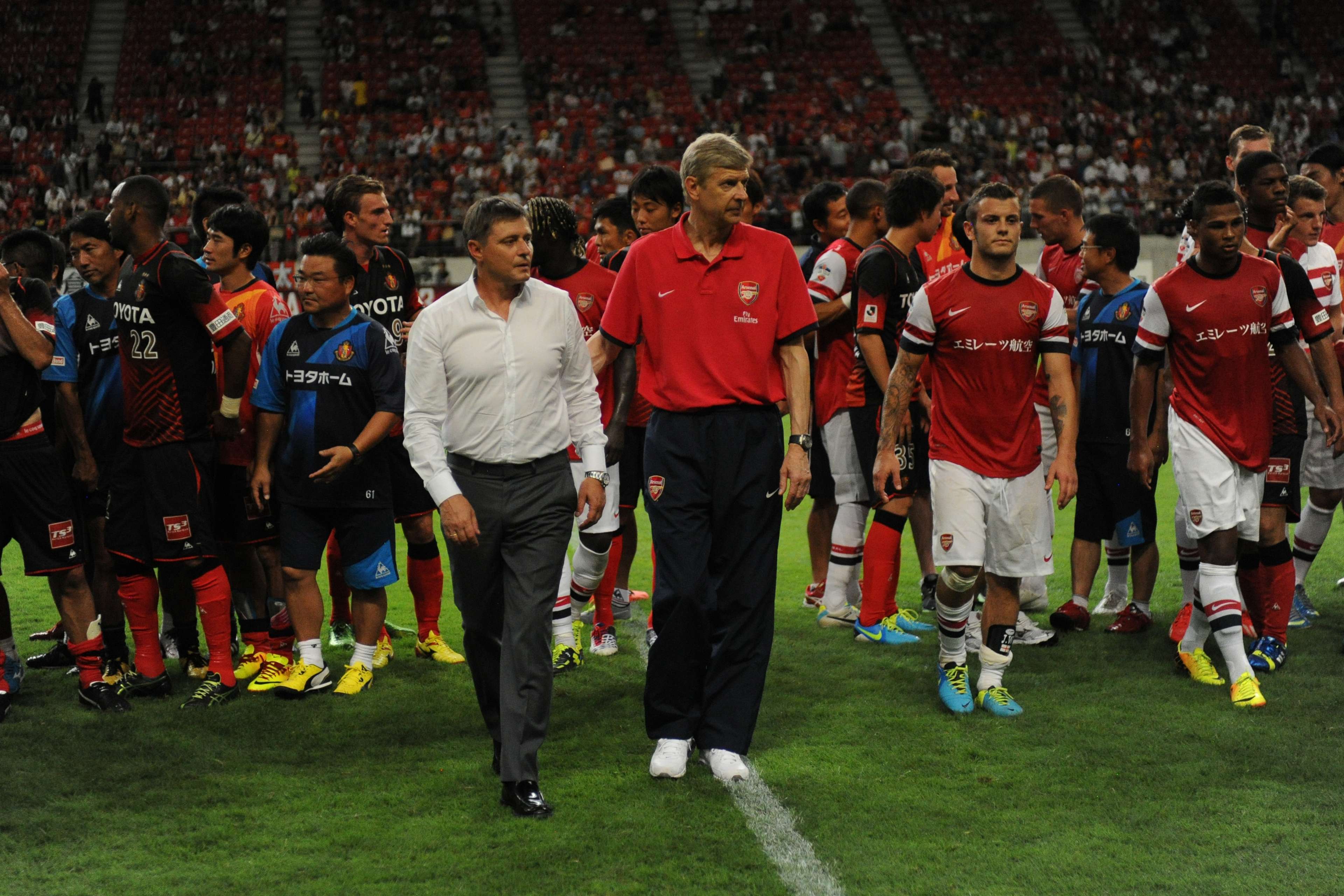
“I think his football philosophy is something very important because he always focuses on technical football.
“He’s not someone who is looking for physical presence on the pitch and long balls. In his view, the football is something different, it means the ball should be on the ground with a lot of quality movement.
“He’s focusing on the technical skills and that’s why he always signs players who control the ball well – intelligent players.
“His training methodology is very simple but interesting – I never had a boring training session with him. He’s very passionate about football and he thinks about football 24/7.”
It’s no secret that Wenger rediscovered his love for football while managing in Japan following a match-fixing scandal which rocked French football, and the Arsenal boss previously revealed that his inability to understand what people were writing in the newspapers gave him added freedom to enjoy the game again.
In the autumn of 1996, Wenger’s stay at Nagoya came to an end when he joined Arsenal after being won over by then vice-chairman David Dein.
For the first time, Stojkovic reveals how Wenger told him that he was one of the top three players he had ever managed, while also attempting to make him one of his first signings at Arsenal – where he planned to deploy the Serbian star in the same forward line as Gunners legend Dennis Bergkamp.
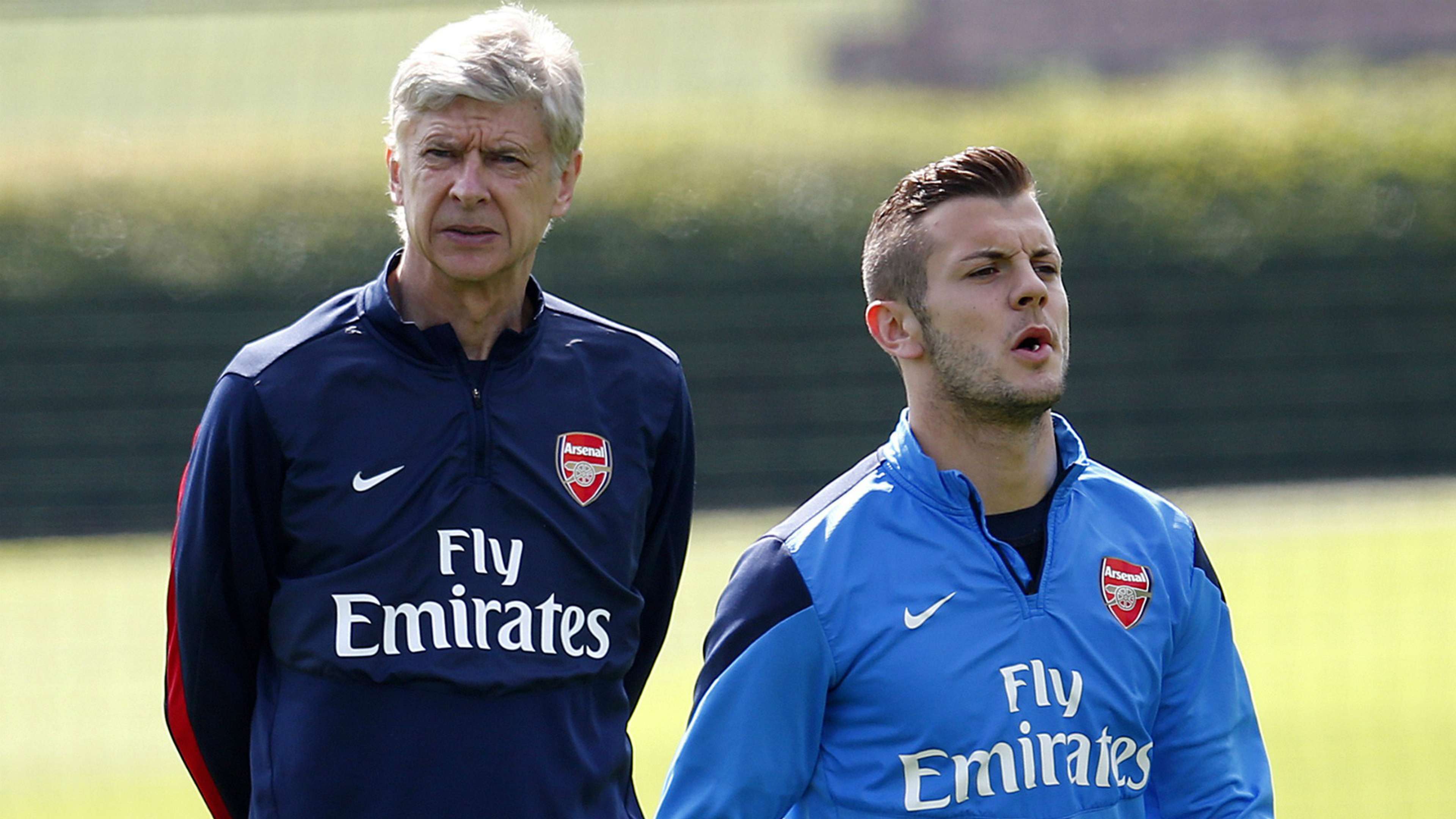
“I’m very grateful that he knew my personality and skills as a player," he confesses.
“He gave me one compliment and in 1996 when he offered me to join Arsenal I decided to stay in Nagoya just for one reason – because my children were there and started school and I felt comfortable there, as I was the star in the J-League.
“In the end, when we said good luck to each other, he told me that he worked with a lot of good players in the world but he said I’m in the top three in his career. I asked him for the other two and he told me ‘George Weah and Glen Hoddle’. I asked him who was the No.1.
“He said, ‘It’s very difficult to say but you’re the three best players I have ever seen.' I was grateful to receive this kind of compliment for him.
“Professionally, yes, [I regret not joining Arsenal], because he [Wenger] explained everything and that he wanted to partner me with [Dennis] Bergkamp, and that [Patrick] Vieira was coming too.
“But I was comfortable [in Japan] and my kids started school so the change was too much [for them] - if not, I would have joined Arsenal.
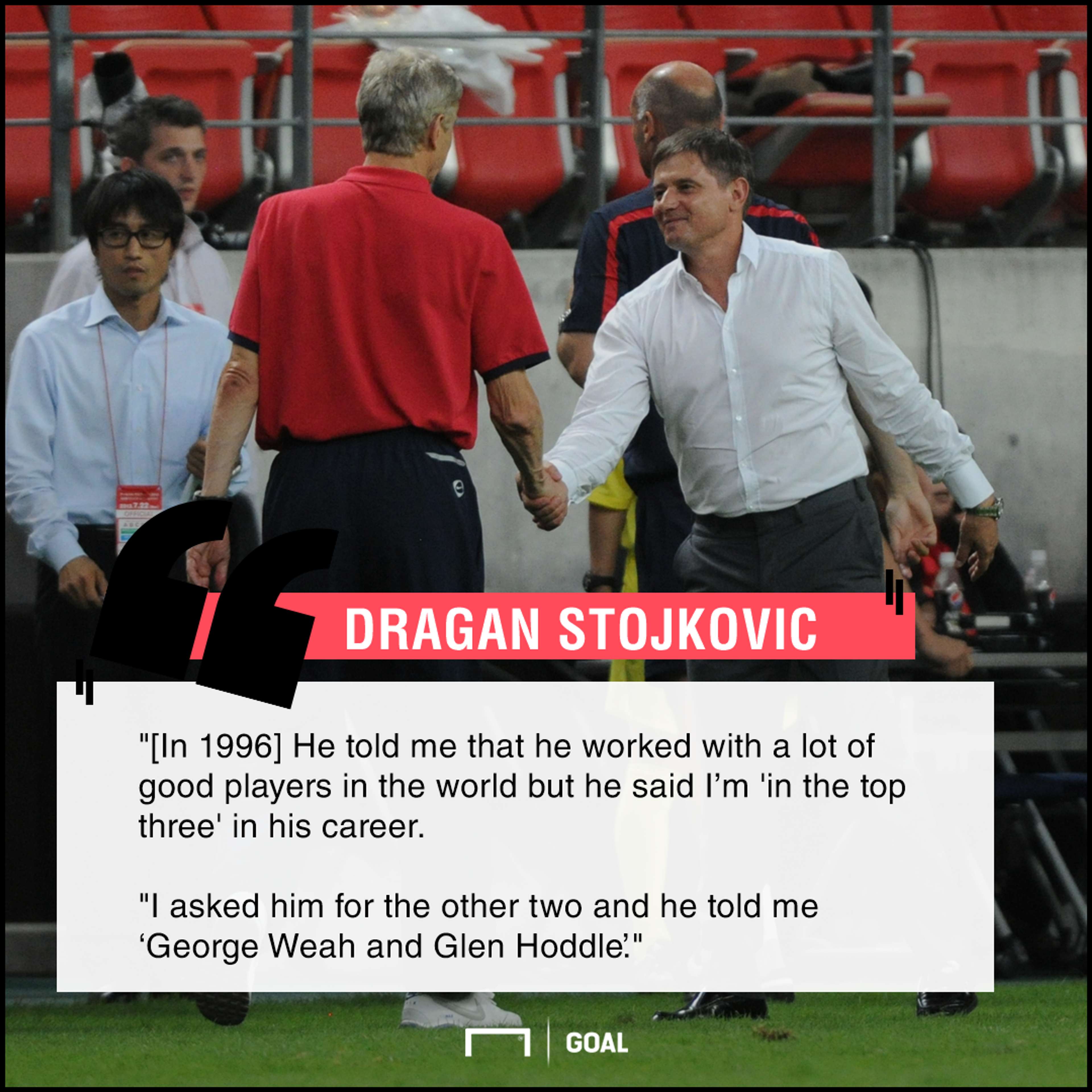
“This offer showed how he respected me as a player and when someone like Wenger says you’re one of the most intelligent players he’s worked with that’s a big compliment for me.”
Wenger’s decision to announce his departure from Arsenal after 22 years at the end of the season came as a surprise to some, yet Stojkovic believes that the progression from ‘Arsene Who?’ to ‘Le Professeur’ coupled with the legacy he has left in north London means the legendary status is certainly deserved.
“Everybody knows what he’s done there [at Arsenal]," he argues. "There was a big question mark when Mr Dein came to Nagoya and convinced him to come to Arsenal. Nobody believed that the ‘Professor’ could come and make that group of players champions.
“He was lucky that the players accepted after a few months his style of work and football. He’s a legend. It’s very difficult to say to someone that you’re a legend, but he’s a real legend.
"Leading one of the most important clubs in the world in that way for 22 years is amazing. He made a new era and a new Arsenal. There’s two Arsenals – before Wenger and one starting from 1996, which included incredible results and amazing skills of play every year, participating in the Champions League every year.
“It’s going to be strange to not see him on the bench because he was there for such a long time. I think the decision is a private one made by himself.
"I will call him to talk and to meet him in London like every year. Every time I’m back in Europe we have a lunch and talk about football. I feel very privileged that I can go and have a lunch and take a coffee with him.
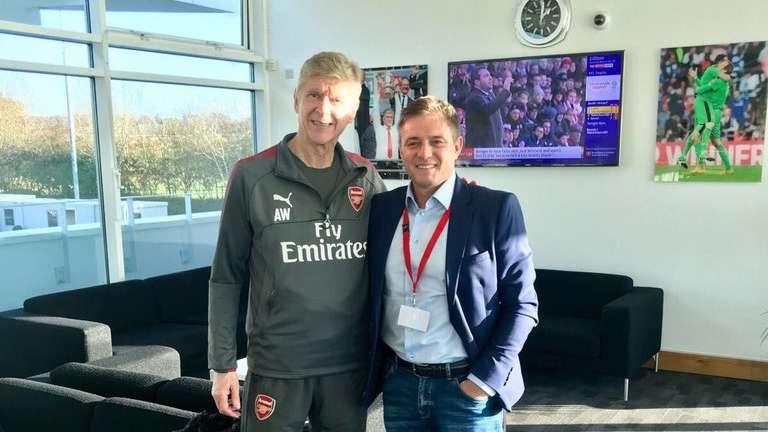
As one of his closest confidants and a friend who regularly keeps in touch with the experienced coach, Stojkovic’s words of advice for Wenger will be to put his feet up and rest after 35 years at the top level with no break.
“I think the best thing is to take a holiday and travel around the world," he reasons. "It’s going to be hard for him because everyone knows him. He’s so intelligent that he knows what he should do.
“I think he needs a rest and after that we will see. I wish him all the best in the future but I think now he deserves rest and a little holiday with friends.
“What I’m definitely sure of is that he won’t say goodbye to football.”
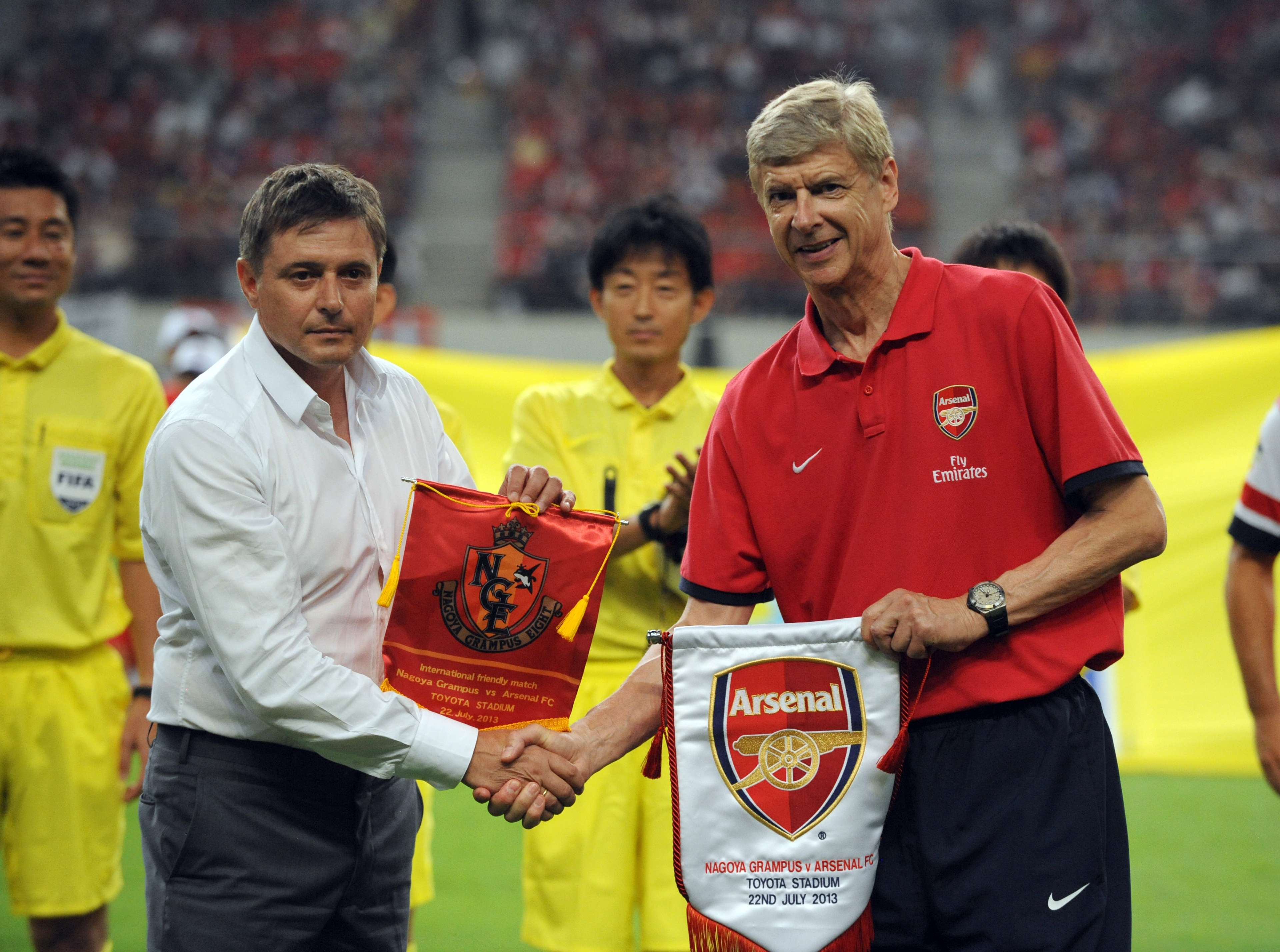




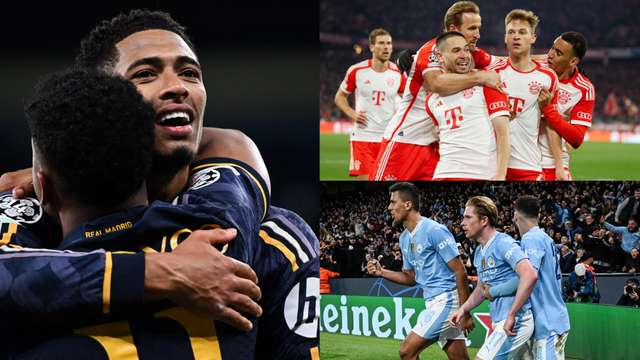
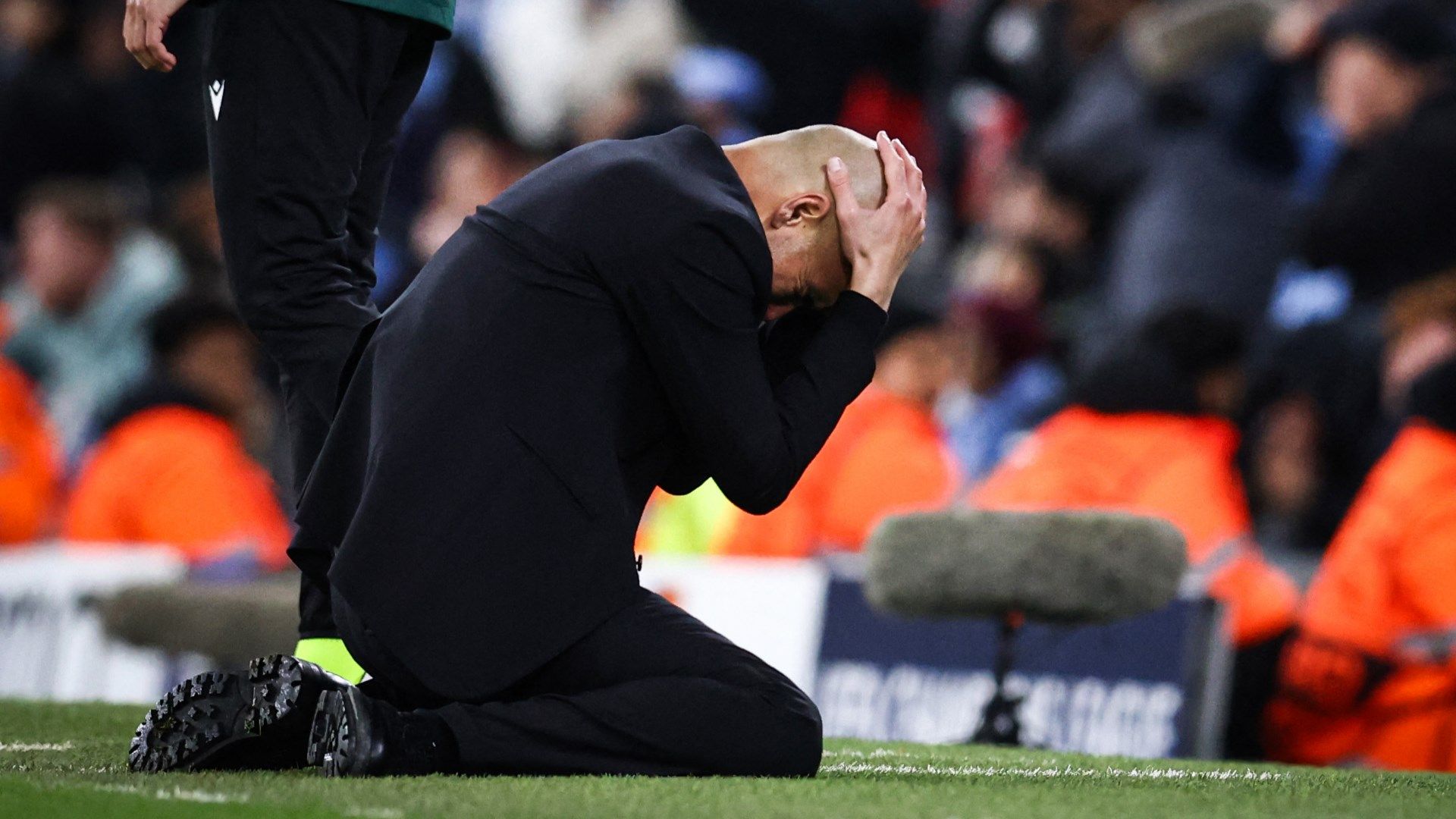.jpg?auto=webp&format=pjpg&width=640&quality=60)

